Logistics Services in UAE
(41 products available)Logistics services mean moving goods and merchandise from their place of origin to their destination (or point of consumption). These services are all the elements of your supply chain, from the factory to the end customer. These include delivery to the final consumer, warehousing, and order fulfillment, and transportation from manufacturer to warehouse. Transportation management systems (TMS) that optimize cargo route planning are just one aspect of the services that logistics service providers can handle, along with warehouse and storage solutions. These services include transport from the factory to the fulfillment warehouse, Warehousing, and order fulfillment. Logistics services streamline transportation & logistics, guaranteeing effective, economical solutions for on-time delivery.
View less
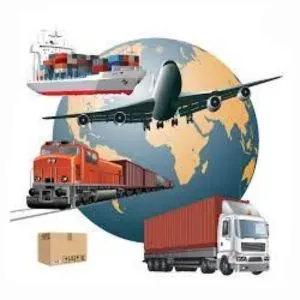
- Temperature Control : Refrigerated (Optional)
- Security Features : GPS Tracking, Sealable Doors
View more...
Allen Freight FZCO
Other Categories
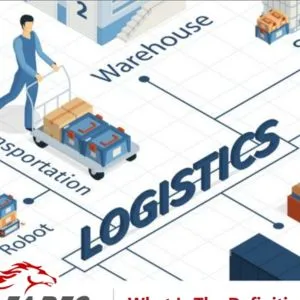
- Shipping Capacity : Vast Fleet, Scalable Logistics Solutions
- Delivery Timeframe : Swift And Reliable Transit Times
View more...
Allen Freight FZCO
Other Categories
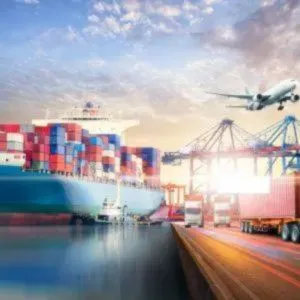
- Material : Heavy-Duty Steel Alloy
- Handling Equipment Compatibility : Medical Equipment,Perishable Cargo,Dangerous Goods
View more...
Allen Freight FZCO
Other Categories

- Service Coverage : Global
- Shipping Modes : Air, Sea, Land
View more...
Allen Freight FZCO
Other Categories
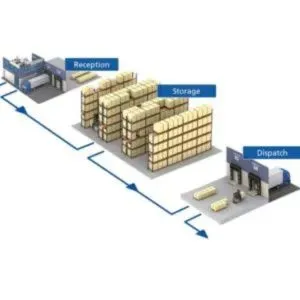
- Scalability : Adaptable To Growing Demands
- Customizable Reporting : Tailored Analytics Dashboard
View more...
Allen Freight FZCO
Other Categories

- Global Reach : Worldwide Network
- Transport Modes : Air, Sea, Land
View more...
Allen Freight FZCO
Other Categories
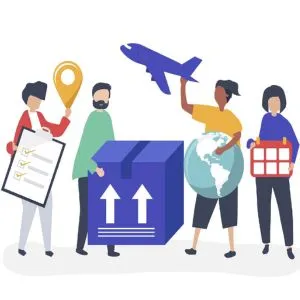
- Customs Expertise : Regulatory Compliance
- Warehousing Solutions : Efficient Storage
View more...
Allen Freight FZCO
Other Categories
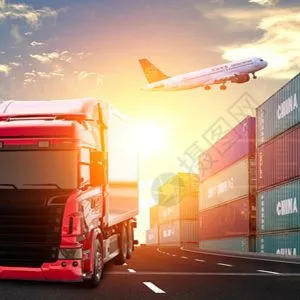
- Mode Of Transportation : Road
- Service Duration : As Per Requirement
View more...
Ocean Oilfield Services FZE
Other Categories
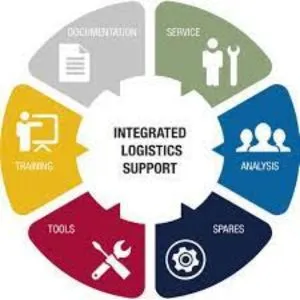
- Tracking : Accurate
- Coordination : Seamless
View more...
Ocean Oilfield Services FZE
Other Categories
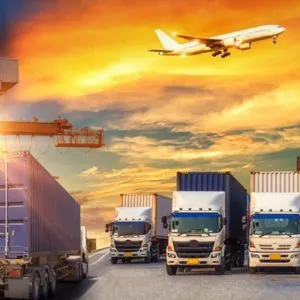
- Load : Both FCL And LCL
- Mode of Transport : Air, Sea, Land
View more...
World Class Freight LLC
Other Categories
An easy way to post your sourcing requests and get quotes.
- One request, multiple quotes
- Verified suppliers matching
- Quotes comparison and sample request
How Logistics Services Benefit Your Business:
- • Streamlined Operations: Outsourcing logistics consultants allows businesses to focus on their core activities while leaving the complexities of supply chain management to experts, leading to more efficient and streamlined operations.
- • Cost Savings: Efficient logistics consultancy services can lead to cost reductions through optimized transportation routes, inventory management, and warehousing solutions, ultimately contributing to improved financial performance for businesses.
- • Enhanced Customer Satisfaction: Reliable logistics contractors ensure timely delivery of products, leading to improved customer satisfaction and loyalty, which is crucial for maintaining a strong customer base and positive brand reputation.
- • Global Reach: International logistics services in UAE enable businesses to expand their reach into new markets, facilitating cross-border transportation, customs clearance, and global supply chain operations, thereby opening up new opportunities for growth and expansion.
- • Scalability: Logistics agents can be tailored to accommodate fluctuations in demand, allowing businesses to scale their operations up or down as needed, providing flexibility and adaptability in response to changing market conditions.
Key Components of Logistics Services
The five main parts of logistics services are as follows:
Demand planning
Resolving all logistics-related issues is crucial to keeping supply and demand in balance. Logistics warehouse management makes sure that everything is planned out to ensure that the flow of commodities is uninterrupted. Therefore, organizations can analyze and forecast the net demand for goods and services by expediting the management logistics operation.
Material handling and storage
The demand in the market nowadays is very erratic. Therefore, excess inventory needs to be on hand to meet customers' unforeseen needs and demand gaps. To guarantee that items are simple to store, ship, and move, warehouse management systems (WMS) are necessary.
In addition to optimizing equipment and storage capacity, WMS lowers transportation costs, all of which contribute to the supply chain's more efficient operations.
Inventory Management
Organizations monitor the inflow and outflow of items in a warehouse by routinely assessing inventory levels. They do analysis to decide what kind of stock to order, when to order it, and where to store it. For this reason, keeping a healthy level of inventory is crucial to meeting client demands. Additionally, the inventory management system is essential.
Transportation Administration
One of the most important aspects of logistics & warehouse management is the proper management of commercial vehicles, which includes several tasks like asset utilization, improved maintenance, fleet planning, and cost reduction. A growing number of companies are now thinking about purchasing fleet management software to maximize the productivity of their fleets and drivers.
Services Offered By Logistic Companies:
E-commerce Logistics:
E-commerce logistics involves managing the storage, transportation, and delivery of online purchases. It ensures efficient movement of goods from the seller to the buyer, often utilizing technology for tracking and timely deliveries.
Global Third-Party Logistics Services:
Global third-party logistics services are companies that handle various logistics functions for businesses, such as warehousing, shipping, and distribution, on a global scale. Global third-party logistics providers specialize in streamlining supply chain processes for clients.
Supply Chain Management:
Supply chain management focuses on overseeing the entire process of producing and delivering goods, from raw materials to the end consumer. It includes planning, procurement, production, and distribution to optimize efficiency.
Logistics Cargo:
Logistics cargo involves the planning, implementation, and control of the movement and storage of goods. Logistics and cargo includes activities such as transportation, inventory management, and order fulfillment. Efficient logistics cargo ensures timely delivery, cost-effectiveness, and overall smooth flow in the supply chain.
Logistics and Freight Forwarding:
Logistics and freight forwarding entail the coordination and management of the transportation of goods from the point of origin to the destination. This includes arranging shipping, customs clearance, and documentation, ensuring a seamless and timely movement of cargo across various modes of transportation.
Logistics and Warehouse Management:
Logistics & warehouse management focus on the efficient storage, handling, and distribution of goods within a warehouse or distribution center. It encompasses inventory control, order picking, and optimizing storage space. Effective logistics and warehouse management enhances overall supply chain performance.
Medical Handling Services:
Medical handling services involve specialized logistics for the transportation and storage of medical supplies, equipment, and pharmaceuticals. This includes maintaining proper temperature controls for sensitive items, complying with regulatory requirements, and ensuring the secure and timely delivery of medical goods to healthcare facilities.
Last-Mile Delivery:
Last-mile delivery is the final leg of the product's journey from the distribution center to the customer's doorstep. It aims to ensure swift and accurate deliveries, often involving local carriers and innovative delivery methods.
Cross-Docking:
Cross-docking is a logistics strategy where goods are transferred directly from inbound to outbound transportation without storage. This reduces handling time, storage costs, and improves the speed of goods distribution.
Reverse Logistics:
Reverse logistics deals with the process of handling returned goods. It includes product returns, repairs, recycling, or disposal. Effective reverse logistics helps companies manage product returns efficiently and minimize waste.
Types of Logistic Service Provider
First-party logistic service provider
Businesses that handle all aspects of the transportation of materials and goods themselves are said to provide first-party logistics services. This means that top logistics companies must keep up their infrastructure, vehicles, and manpower for handling and transporting materials and equipment (trucks, cargo, freight, etc.).
Second-party logistic service provider
Second-party logistics services are provided by companies to a logistics company or individual when they subcontract a portion of their transportation and logistics needs. When an owner prefers to avoid making infrastructure investments, they typically use these services for cost-benefit analysis and operational effectiveness.
Third-party logistic service provider
In a logistics environment, 3PL services are arguably the most frequently utilized logistics offerings. When you work with a third-party logistics (3PL), all logistics and transportation services are contracted out to a logistics partner, who may then subcontract all or part of the service to a different party.
Role of Logistics Services in Business
A crucial component of supply chain management, logistics management aims to satisfy customer demands by efficiently organizing, directing, and carrying out the flow of commodities. In addition to giving information on the activities and inventory status, it entails overseeing the full flow of goods and related services. Here are a few main justifications for the necessity of logistical services.
Effective supply chain management:
It is made possible by logistics services, which guarantee a seamless transfer of commodities from suppliers to consumers. Companies that optimize transportation, warehousing, and inventory management can cut costs, shorten lead times, and boost customer satisfaction.
Client Satisfaction and Retention:
Accurate and timely delivery is essential to client satisfaction. Logistics services make sure that goods are delivered on schedule and in top shape, which helps firms satisfy customer expectations. Customer retention and loyalty are increased when customers are satisfied since they are more inclined to return.
Optimization of Costs:
Businesses can reduce expenses associated with inventory management, warehousing, and transportation by utilizing efficient logistics services. Companies that find the most effective routes, combine shipments, and put inventory management procedures in place can cut down on wasteful spending and increase their bottom line.
Scalability and Flexibility:
Logistics services offer the scalability and flexibility required by expanding enterprises to satisfy rising demand. By forming partnerships with logistics service providers, businesses can have access to more infrastructure, resources, and knowledge without having to make large upfront commitments.
Thus, by following industry norms and client requirements while putting plans and strategies into action, logistics management aids businesses in reducing expenses and enhancing customer service. Services related to logistics are essential to the success of companies in all sectors.
Emerging Trends in Logistics Services
Logistics trends are inseparable from advancements in business, society, and technology. Businesses want to increase the sustainability of their processes and automate as much as they can. Despite the challenges the logistics sector has encountered, these advances are expected to enhance overall operations.
Automation
In-house operations can save labor expenses and physical labor by automating tasks. It gives your logistics crew more time to figure out how to automate tasks to optimize operations. Operations would still benefit immensely from the presence of a logistics processor, but automation seeks to lessen their workload.
Automation is a group of technologies used to increase productivity. Its primary goal is to minimize human intervention while facilitating a smooth transition in several domains, including planning, distribution, procurement, sales, and suppliers.
Internet of Things
One major topic is the Internet of Things (IoT). It aids companies in streamlining their supply chains. Certain corporations equip their cars with sensors so they can monitor shipments. They can provide location and route management as well. IoT solutions for warehouses can support preventative maintenance, storage conditions, and inventory management.
Cloud-Based Software
Businesses can scale up or down in response to changes in the market due to cloud computing. It also facilitates the integration of almost any contemporary technology, regardless of whether businesses choose hybrid or cloud-native environments.
Adopting cloud computing offers several benefits, chief among them the ability to focus on analytics while decentralizing visibility and data collection.
Artificial intelligence for computation
The industry is becoming more aware of artificial intelligence (AI) as a result of the quick advancements in big data analytics, computing power, and machine learning. In the right hands, it may assist companies in enhancing the functionality of their operations, identifying possible issues, and proposing solutions.
The adoption of machine learning in industry has increased with the advent of Cloud technologies and the growth in computer power. A recent study found that more than 34% of companies currently incorporate machine learning into their operations.
Digital Duplicates
As everyone knows, products are never exactly like they appear online. The wearing down and replacement of parts are often overlooked in modeling. This is finally changing due to digital twin technology.
For the first time, we may now engage with a digital model of an actual product or part in the same way that we would with their real counterparts due to the merging of the physical and digital worlds.
Blockchain
One application for the Blockchain platform is as a digital ledger. Important data could be shared across many networks using this technique without running the risk of it being corrupted or leaked. Nonetheless, businesses need to properly gather and arrange their data.
Once the industry sets new standards, businesses will also need to create an ecosystem of supply chain partners who can utilize the blockchain environment.
Advanced-Data & Analytics
Businesses in the logistics industry gather a lot of data. Businesses that wish to thrive must implement sound data management procedures. With the introduction of its Industry Blueprint and new data standards for container shipping, DCSA has set the path for improvements across the board in the industry. Businesses are choosing more and more to filter their data and create modern statistics out of it.
Robotics
Recent years have seen a significant shift in warehouse operations, and as technology becomes more integrated, this is one logistics innovation that will not go away. Robots used in warehouses are among the most notable innovations.
Challenges in Logistics Services
The logistics industry is going through a revolutionary age characterized by major global logistical issues that necessitate companies to take strategic action. The logistics and supply chain management landscape is changing as a result of these difficulties, which range from recurring supply chain interruptions to the smooth integration of modern technologies. Listed below are the challenges:
Supply chain Disruption
In 2024, there will be more frequent and intricate disruptions to supply chains due to a combination of causes, such as shifting global trade corridors like the Panama and Suez Canal, environmental events, and geopolitical tensions. These issues are made worse by persistent conflicts, global warming, and changes in the worldwide logistics environment, which force businesses and nations to reevaluate long-standing trade routes and policies.
Businesses are urged to adopt practices that enhance resilience and adaptability to traverse these rough waters. It becomes clear that diversifying your sources is essential for lowering your reliance on a single source and managing risk. Moreover, firms can become more capable of anticipating disruptions and making quick adjustments to operations by investing in cutting-edge supply chain systems that provide flexibility and real-time visibility.
Environmental issues and sustainability
Since the logistics sector produces 9% of the world's greenhouse gas emissions, it is under greater scrutiny than ever before when it comes to environmental sustainability. This is mostly because the sector relies heavily on fossil fuels to carry goods across international borders. To meet the worldwide mandate to battle climate change and to line with the interests of an increasingly environmentally conscious consumer base, businesses are investigating eco-friendly logistics techniques as a means of reducing their environmental imprint.
To achieve sustainability in logistics, a comprehensive strategy for reducing environmental impact must be adopted. This strategy includes implementing more environmentally friendly packaging options, increasing the use of renewable energy sources in logistic operations, and improving fuel efficiency in transportation.
Integration of technology
There are advantages and disadvantages to the logistics industry's adoption of technological innovations including artificial intelligence (AI), the Internet of Things (IoT), blockchain, and software as a service (SaaS). These developments are essential for improving operational efficiencies, from increasing tracking accuracy to simplifying the entire supply chain process. As a result, companies that want to remain competitive need to comprehend and incorporate these technologies into their operations.
AI may be used for predictive analytics, which helps businesses prepare for supply chain problems by foreseeing them before they happen. IoT devices provide shipments with real-time tracking and monitoring, guaranteeing accountability and transparency through the delivery process.
How to Choose the Right Logistics Service Provider:
• Expertise and Experience: Choose a logistics provider with proven expertise and experience in your industry. Look for a track record of successful deliveries and knowledge of specific challenges within your niche.
• Reliability and Timeliness: Ensure the provider has a reputation for reliability and timely deliveries. Consistency is key; pick a partner known for meeting deadlines and maintaining a dependable service.
• Technology and Innovation: Opt for a logistics partner that embraces technology and innovation. Advanced tracking systems, real-time updates, and efficient processes contribute to smoother operations and enhanced communication.
• Scalability and Flexibility: Assess the provider's ability to scale with your business needs. A flexible logistics partner adapts to changes in volume, locations, and services, ensuring seamless support during periods of growth or fluctuations.
• Cost-Effective Solutions: Balance quality with cost-effectiveness. Choose a logistics service provider that offers competitive pricing while maintaining service excellence. Transparency in pricing and a clear understanding of fees contribute to a mutually beneficial partnership.
• Customer Service and Communication: Prioritize excellent customer service and communication. A responsive provider that keeps you informed and addresses concerns promptly ensures a smoother supply chain. Effective communication fosters a collaborative and efficient working relationship.
Connect With The Top Logistics Companies in UAE on TradersFind:
TradersFind, your go-to platform for outsourcing the best logistics companies in UAE, offers a seamless outsourcing experience. By partnering with trusted logistics service providers listed on our website, businesses benefit from expertise, reliability, and scalability. Our platform showcases a diverse range of products and services, including electronics, fashion, and automotive parts, each accompanied by detailed descriptions and specifications. With verified companies and clear contact information, users can easily connect with logistic companies via mobile or WhatsApp. Outsourcing logistics & freight forwarders through TradersFind ensures timely deliveries, cost-effective logistics solutions, and exceptional customer service. Simplify your supply chain management and drive efficiency with TradersFind today.
Frequently Asked Questions (FAQs)
Q1: What are the key components of logistics services?
A1: Storage, warehousing, material handling, packaging and use, inventory management, information and control, fleet transportation, and other activities are among the main parts of logistics services.
Q2: What are the advantages of logistics services and how do they operate?
A2: Logistics services oversee the transportation of products from the producer to the end user. In addition, they oversee inventory by keeping products in fulfillment centers and warehouses. Before things are delivered, they also make sure there is enough room for storage to keep them safe.
Q3: How may logistics services help in cost optimization for businesses?
A3: Logistics services can assist cut costs by figuring out the best routes for transportation, grouping shipments to save on costs associated with shipping, putting inventory control procedures in place to cut down on holding costs, and using technology to better allocate resources.
Q4: What factors should businesses consider when choosing a logistics service provider?
A4: Businesses should take into account various aspects when selecting a logistics service provider, including cost-effectiveness, technological capabilities, geographic coverage, track record, dependability, and the capacity to expand with the company.
Q5: What effect do logistics services have on client satisfaction?
A5: Because logistics services guarantee the prompt and precise delivery of goods, they are essential to consumer satisfaction. When customers receive their orders on time and in perfect shape, it improves their whole experience and builds a favorable impression of the company.
Q6: What are the 7 R's of customer service in logistics?
A6: Before describing 7R briefly, the R written above denotes the right Product, Right condition, Right quantity, Right Place, Right customer, Right price, and Right time.
Q7: What are the 5 P's of logistics?
A7: A crucial foundation for logistics management is provided by the 5 Ps of logistics. These five fundamental guidelines are adhered to by your shipping and logistics firm to give you the best possible service. People, products, processes, partnerships, and performance are the 5 Ps.
Copyright © 2024 Interconnect Marketing Management L.L.C All rights reserved.















